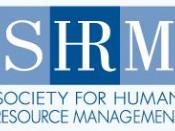The term "human capital" is now part of everyday business language. It represents the sum of a workforce's skills, knowledge, and experience, and is now seen as a critical source of value for a company, when managed properly. No longer considered the sole province of the human resources function, managing human capital is now a collaboration increasingly shared by all an organization's leaders.
Before getting into how Human Resources Management (HRM) adds value to a company I would like to look at what some common core HRM business activities are. Some examples are: recruiting, hiring and retaining faculty and staff, paying employees and managing benefits, managing financial and budgetary transactions, procuring goods and services, managing grants and contracts, and information and data access and desktop support related to the above.
How companies manage their human capital is now an investor and board-level issue. Forty-nine percent report that investors are beginning to ask about human capital issues to at least a moderate extent.
Today, 23% say that their boards are highly involved in human capital issues; in two years, 36% expect such involvement. Interviews suggest that recent board interest is partly a result of the past year's corporate scandals, but also a growing recognition of human capital's importance to the bottom line. CFOs now have a balanced view of the HR function. CFOs have traditionally regarded HR as a non-strategic cost center, but they increasingly see it as a strategic partner. Thirty-nine percent consider HR more of a partner, and 33% see it as being equally a partner and a cost center. Human Resource management is the effective use of a businesses most valuable resource, its employees. Their valuable knowledge and function forms the core basis of a businesses operation. Having the right staff allocated for a selected position is the...



Reminds me of japanese workers.
they seem to take their careers more seriously than we do. we tend do to do our jobs' because we want the money more than anything
5 out of 5 people found this comment useful.